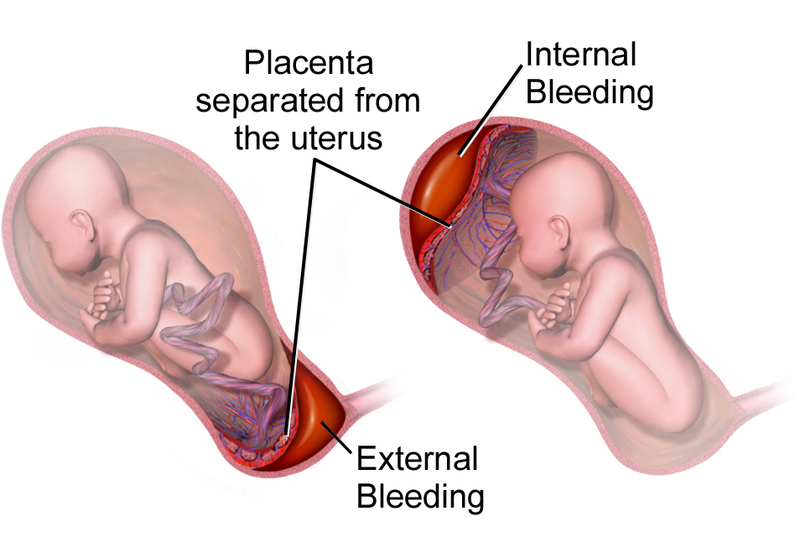
Placental Abruption: A Serious Pregnancy Complication
Placental abruption is a serious pregnancy complication that occurs when the placenta separates from the uterine wall before the baby is born. This can cause bleeding, pain, and can be life-threatening for both the mother and the baby.
What Causes Placental Abruption?
The exact cause of placental abruption is unknown, but there are a number of risk factors that can increase the chances of developing this condition, including:
- High blood pressure
- Smoking
- Drug use
- Alcohol use
- Multiple pregnancies
- Previous placental abruption
- Trauma to the abdomen
Symptoms of Placental Abruption
The most common symptom of placental abruption is vaginal bleeding. The bleeding can be light or heavy, and it may be accompanied by pain. Other symptoms of placental abruption include:
- Abdominal pain
- Back pain
- Uterine contractions
- Fetal distress
Diagnosis of Placental Abruption
Placental abruption is diagnosed based on the symptoms and a physical examination. Your doctor may also order an ultrasound to confirm the diagnosis.
Treatment for Placental Abruption
The treatment for placental abruption depends on the severity of the condition. If the bleeding is light and the baby is not in distress, your doctor may recommend bed rest and close monitoring. If the bleeding is heavy or the baby is in distress, your doctor may recommend hospitalization and delivery of the baby.
Complications of Placental Abruption
Placental abruption can lead to a number of complications, including:
- Maternal hemorrhage
- Fetal death
- Premature birth
- Low birth weight
- Long-term health problems for the baby
Prevention of Placental Abruption
There is no sure way to prevent placental abruption, but there are a number of things you can do to reduce your risk of developing this condition, including:
- Control your blood pressure
- Quit smoking
- Avoid drug and alcohol use
- Get regular prenatal care
If you are pregnant and experience any of the symptoms of placental abruption, it is important to seek medical attention immediately.
In-Depth Look at Placental Abruption
What is the placenta?
The placenta is an organ that develops in the uterus during pregnancy. It is responsible for providing oxygen and nutrients to the baby and removing waste products from the baby’s blood. The placenta also produces hormones that help to maintain the pregnancy.
How does placental abruption occur?
Placental abruption occurs when the placenta separates from the uterine wall before the baby is born. This can happen for a number of reasons, including:
- Trauma to the abdomen
- High blood pressure
- Smoking
- Drug use
- Alcohol use
- Multiple pregnancies
- Previous placental abruption
What are the symptoms of placental abruption?
The most common symptom of placental abruption is vaginal bleeding. The bleeding can be light or heavy, and it may be accompanied by pain. Other symptoms of placental abruption include:
- Abdominal pain
- Back pain
- Uterine contractions
- Fetal distress
How is placental abruption diagnosed?
Placental abruption is diagnosed based on the symptoms and a physical examination. Your doctor may also order an ultrasound to confirm the diagnosis.
How is placental abruption treated?
The treatment for placental abruption depends on the severity of the condition. If the bleeding is light and the baby is not in distress, your doctor may recommend bed rest and close monitoring. If the bleeding is heavy or the baby is in distress, your doctor may recommend hospitalization and delivery of the baby.
What are the complications of placental abruption?
Placental abruption can lead to a number of complications, including:
- Maternal hemorrhage
- Fetal death
- Premature birth
- Low birth weight
- Long-term health problems for the baby
How can placental abruption be prevented?
There is no sure way to prevent placental abruption, but there are a number of things you can do to reduce your risk of developing this condition, including:
- Control your blood pressure
- Quit smoking
- Avoid drug and alcohol use
- Get regular prenatal care
If you are pregnant and experience any of the symptoms of placental abruption, it is important to seek medical attention immediately.